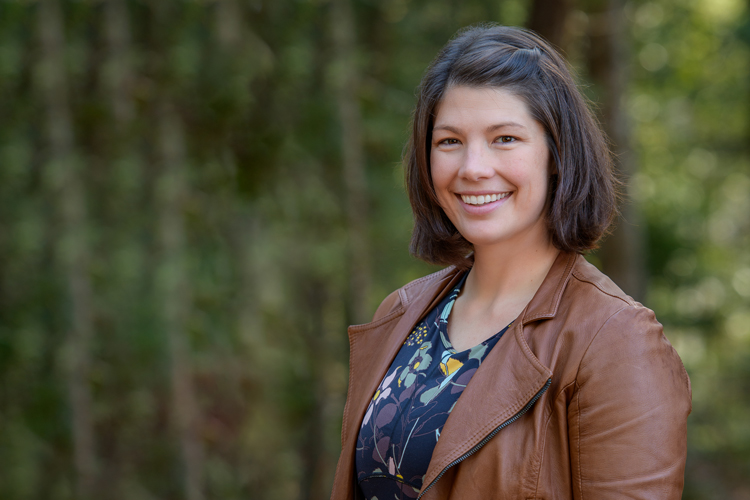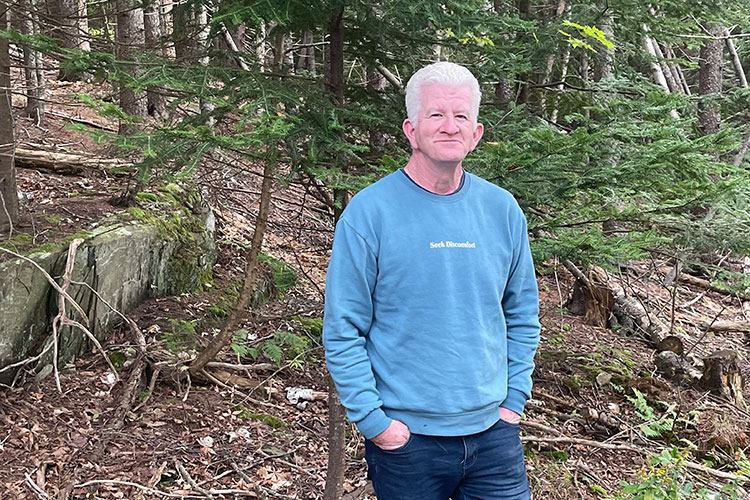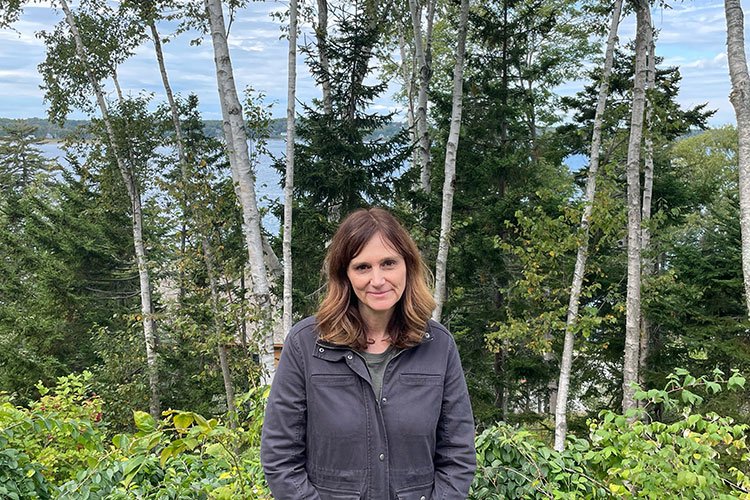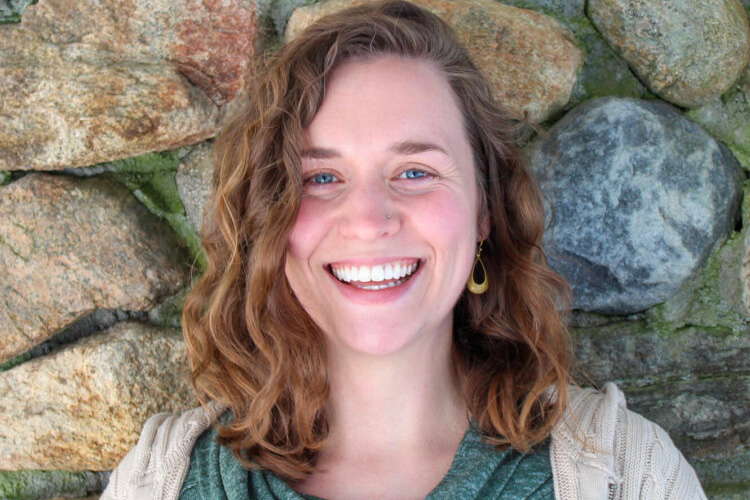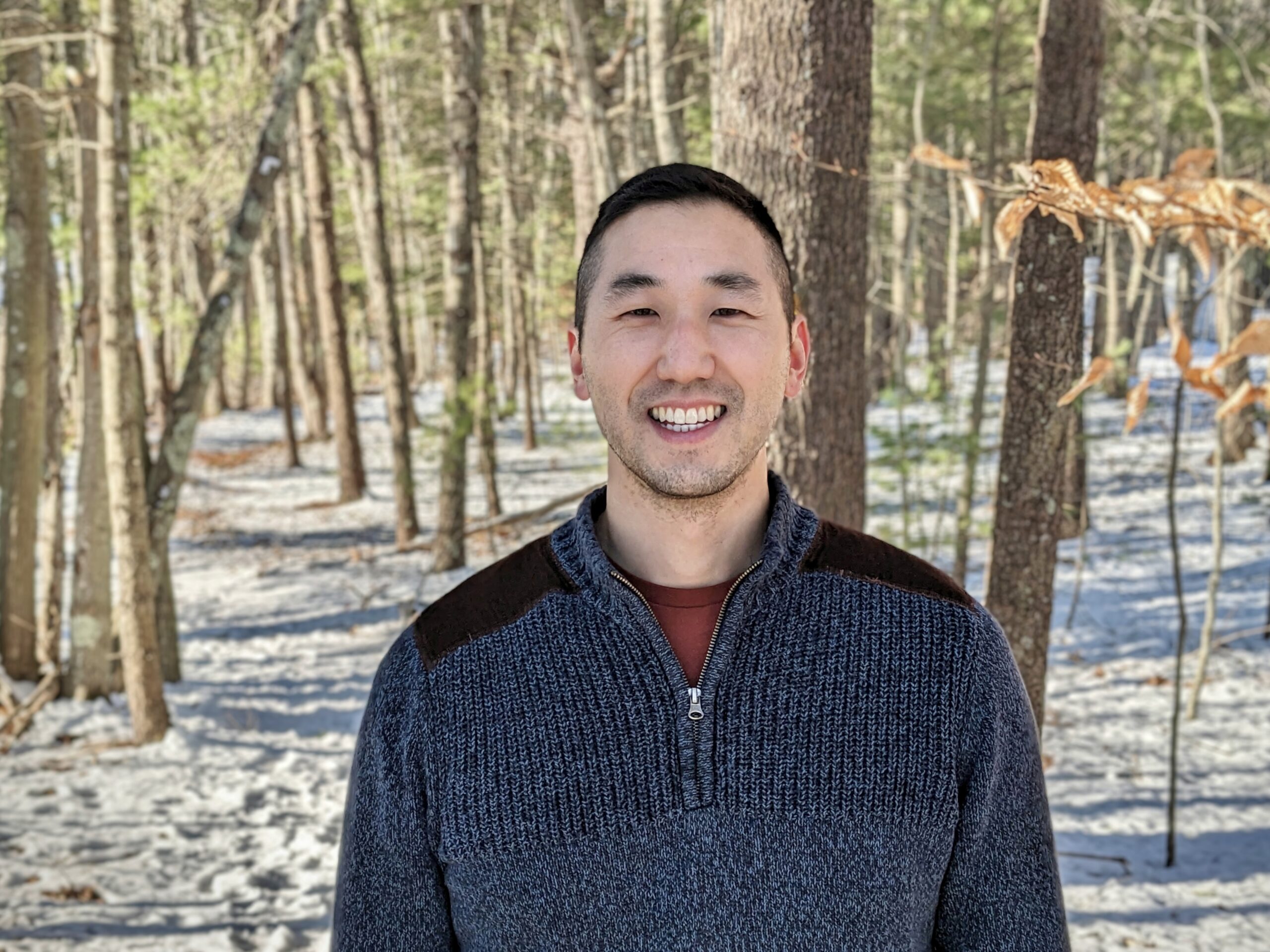
Supporting Play-based Engagement with Science and Engineering Practices in Early Learning Environments
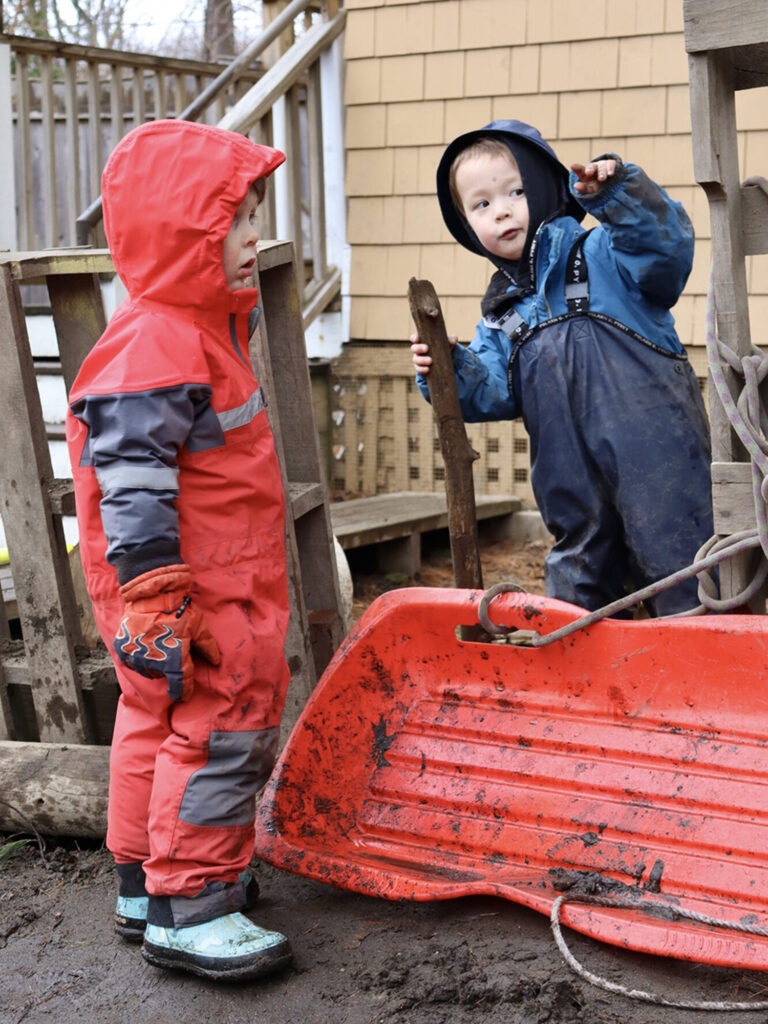
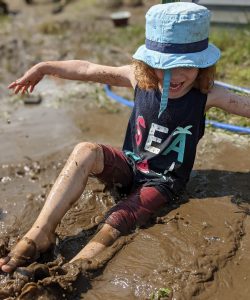
What are we up to?
In this collaborative research project with Bowdoin College and Samara Early Learning, we are exploring how preschoolers and kindergarteners engage in science and engineering practices through play. We are designing professional learning materials and hosting peer coaching sessions to support early childhood educators in fostering play-based science engagement.Why play?
Play is recognized internationally as the primary way young children make sense of the world and a fundamental component of their development. The benefits of play are numerous, spanning physical, social-emotional, and cognitive growth. Recent studies also suggest that play provides abundant opportunities for science learning.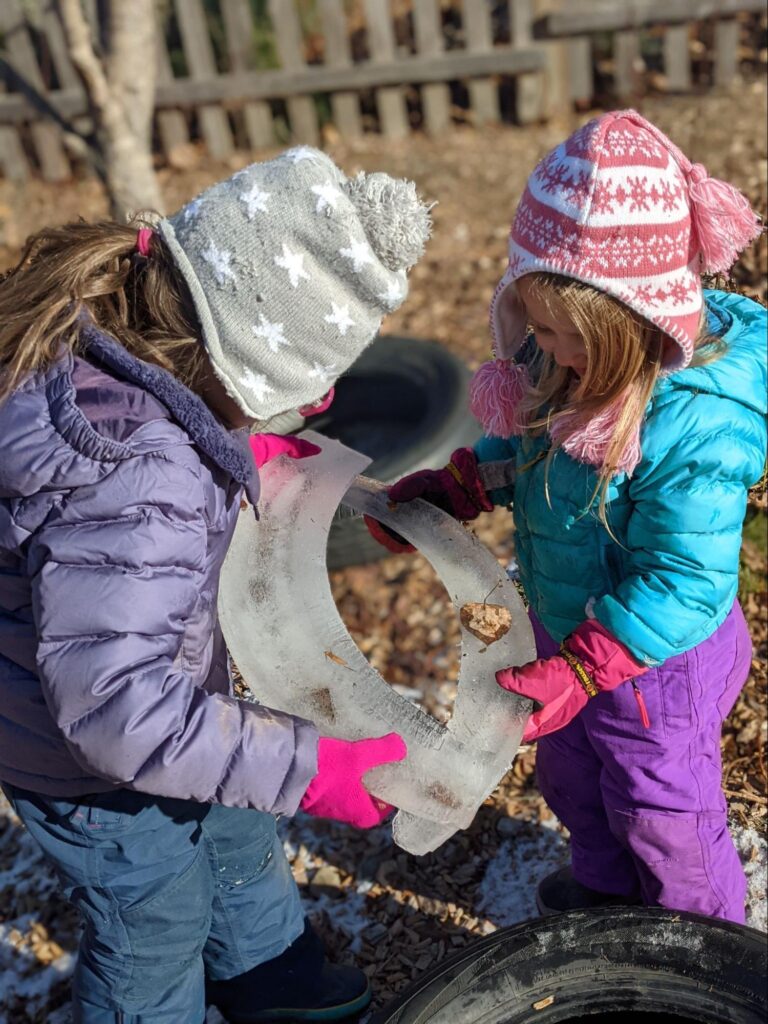
Why science?
Young children are natural scientists, curious about the world around them. They make observations, pose questions, investigate their surroundings, and design solutions to problems. In other words, children instinctively engage in science and engineering practices, often without prompting from adults. Through self-directed play, children develop their capacity for science sensemaking. This serves as a critical stepping stone for science learning in later years.
How can educators support science through play?
Early childhood educators can support and extend children’s play-based science engagement through purposeful play environments and subtle facilitation. By adapting the physical space and providing open-ended materials, educators can set the stage for robust science exploration – both indoors and outdoors. Strategic teacher moves such as guiding questions can further enhance children’s scientific investigation and engineering design
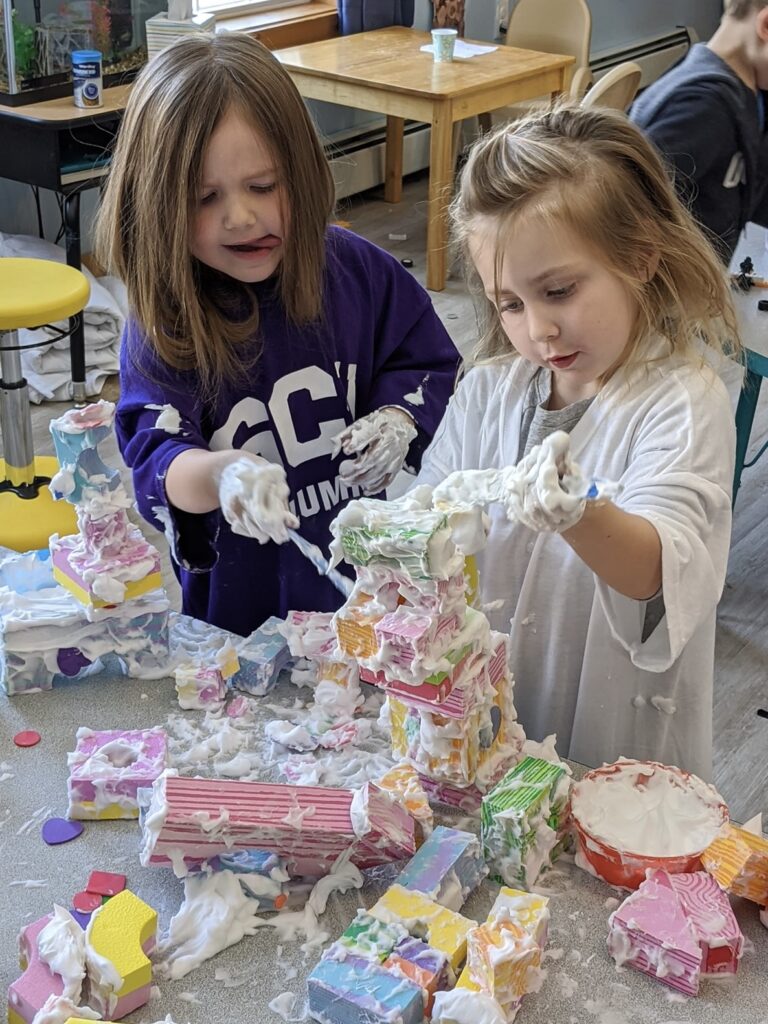
How can we support educators?
Our project team will design professional learning materials and host peer coaching sessions for early childhood educators to reflect on – and “play” with – their own teaching practice. Educators will observe video-based cases and collaboratively build knowledge of effective strategies to extend children’s play-based engagement with science and engineering. By partnering with educators and leveraging their expertise, we hope to increase access to play-based STEM learning for all children.

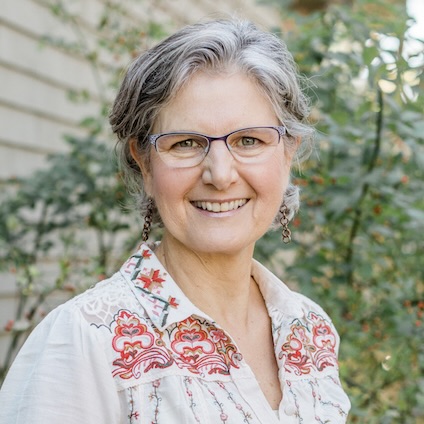


What are we up to?
In this collaborative research project with Bowdoin College and Samara Early Learning, we are exploring how preschoolers and kindergarteners engage in science and engineering practices through play. We are designing professional learning materials and hosting peer coaching sessions to support early childhood educators in fostering play-based science engagement.
Why play?
Play is recognized internationally as the primary way young children make sense of the world and a fundamental component of their development. The benefits of play are numerous, spanning physical, social-emotional, and cognitive growth. Recent studies also suggest that play provides abundant opportunities for science learning.

Why science?
Young children are natural scientists, curious about the world around them. They make observations, pose questions, investigate their surroundings, and design solutions to problems. In other words, children instinctively engage in science and engineering practices, often without prompting from adults. Through self-directed play, children develop their capacity for science sensemaking. This serves as a critical stepping stone for science learning in later years.
How can educators support science through play?
Early childhood educators can support and extend children’s play-based science engagement through purposeful play environments and subtle facilitation. By adapting the physical space and providing open-ended materials, educators can set the stage for robust science exploration – both indoors and outdoors. Strategic teacher moves such as guiding questions can further enhance children’s scientific investigation and engineering design

How can we support educators?
Our project team will design professional learning materials and host peer coaching sessions for early childhood educators to reflect on – and “play” with – their own teaching practice. Educators will observe video-based cases and collaboratively build knowledge of effective strategies to extend children’s play-based engagement with science and engineering. By partnering with educators and leveraging their expertise, we hope to increase access to play-based STEM learning for all children.
Project Description
In this collaborative research project with Bowdoin College and Samara Early Learning, we are exploring how preschoolers and kindergarteners engage in science and engineering practices through play. We are designing professional learning materials and hosting peer coaching sessions to support early childhood educators in fostering play-based science engagement.
Play is recognized internationally as the primary way young children make sense of the world and a fundamental component of their development. The benefits of play are numerous, spanning physical, social-emotional, and cognitive growth. Recent studies also suggest that play provides abundant opportunities for science learning.
Young children are natural scientists, curious about the world around them. They make observations, pose questions, investigate their surroundings, and design solutions to problems. In other words, children instinctively engage in science and engineering practices, often without prompting from adults. Through self-directed play, children develop their capacity for science sensemaking. This serves as a critical stepping stone for science learning in later years.
Early childhood educators can support and extend children’s play-based science engagement through purposeful play environments and subtle facilitation. By adapting the physical space and providing open-ended materials, educators can set the stage for robust science exploration – both indoors and outdoors. Strategic teacher moves such as guiding questions can further enhance children’s scientific investigation and engineering design.
Our project team will design professional learning materials and host peer coaching sessions for early childhood educators to reflect on – and “play” with – their own teaching practice. Educators will observe video-based cases and collaboratively build knowledge of effective strategies to extend children’s play-based engagement with science and engineering. By partnering with educators and leveraging their expertise, we hope to increase access to play-based STEM learning for all children.

Play is recognized internationally as the primary way young children make sense of the world and a fundamental component of their development. The benefits of play are numerous, spanning physical, social-emotional, and cognitive growth. Recent studies also suggest that play provides abundant opportunities for science learning.
Young children are natural scientists, curious about the world around them. They make observations, pose questions, investigate their surroundings, and design solutions to problems. In other words, children instinctively engage in science and engineering practices, often without prompting from adults. Through self-directed play, children develop their capacity for science sensemaking. This serves as a critical stepping stone for science learning in later years.
Early childhood educators can support and extend children’s play-based science engagement through purposeful play environments and subtle facilitation. By adapting the physical space and providing open-ended materials, educators can set the stage for robust science exploration – both indoors and outdoors. Strategic teacher moves such as guiding questions can further enhance children’s scientific investigation and engineering design.
Our project team will design professional learning materials and host peer coaching sessions for early childhood educators to reflect on – and “play” with – their own teaching practice. Educators will observe video-based cases and collaboratively build knowledge of effective strategies to extend children’s play-based engagement with science and engineering. By partnering with educators and leveraging their expertise, we hope to increase access to play-based STEM learning for all children.
Project Partners


Project Staff

Maranda Chung
Principal Investigator; Professional Learning Design & Facilitation

Kim Charmatz
Project Manager
Project Funder

This project is funded by the National Science Foundation, grant #2201674. Any opinions, findings, and conclusions or recommendations expressed in these materials are those of the author(s) and do not necessarily reflect the views of the National Science Foundation.
In the News
July 15, 2022 – Press Release from Bowdoin College: Bowdoin Receives NSF Grant to Expand STEM Education for Maine Preschoolers and Kindergarteners
July 18, 2022 – Press Release from Press Herald: Bowdoin, math and science alliance receive more than $2.25 million to expand STEM education for Maine preschoolers, Kindergarteners.




